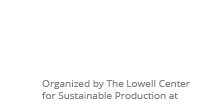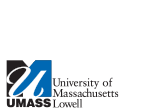2021 A4 Symposium - Agenda
Monday, October 25
|
11:00 AM - 3:00 PM ET |
A4 Short Course – Tour de Force of Tools from the US Environmental Protection Agency (EPA) to Support Assessments of Alternatives A4 is pleased to offer a “Tour de Force of Tools from the US EPA to Support Assessments of Alternatives.” This 2021 A4 Symposium Short Course will feature a curated selection of robust databases and applications developed by the US Environmental Protection's (EPA) Center for Computational Toxicology and Exposure that can assist with the identification and evaluation of chemical alternatives to chemicals of concern. With a focus on the alternatives assessment and functional substitution context, attending participants will learn from US EPA staff about:
Presenters: Todd Martin, Research Chemical Engineer, Center for Computational Toxicology and Exposure, US Environmental Protection Agency Katherine Phillips, Physical Scientist, Center for Computational Toxicology and Exposure, US Environmental Protection Agency Antony Williams, Computational Chemist, Center for Computational Toxicology and Exposure, US Environmental Protection Agency
The recording to this training is now available on the A4 YouTube Channel. Short Course Resources: Resources mentioned during the Short Course are available for download. |
Tuesday, October 2
|
11:00 AM - 12:30 PM ET |
Symposium Opening Remarks Presenter: Pamela Spencer, President of A4; Senior Director of Regulatory Affairs & Product Stewardship, ANGUS Chemical Lauren Heine, VP of A4; Director of Science & Data Integrity and Cofounder, ChemFORWARD
World-renowned expert toxicologist Dr. Joseph Rodricks, architect William McDonough, and green chemist Dr. John Warner will collectively speak about principles and methods that contribute to a safer and sustainable world using risk assessment, circular design, and green chemistry principles.
In the past, these methods were often applied in a siloed manner, resulting in the development of materials and products that weren’t equally safer and sustainable. To effect transformative change on a global level—reducing pollution, achieving carbon neutrality, and promoting a circular economy, it is critical to implement a holistic approach that equally values safer chemical design and sustainable design principles. This panel is intended to foster a candid discussion among three international experts and identify challenges and opportunities associated with effecting this much needed transformation. Keynote Introductions: Laura Plunkett, President, Society of Toxicology's Risk Assessment Specialty Section; Partner, BioPolicy Solutions LLC Moderator: Joel Tickner, A4 Executive Director; Professor of Public Health, University of Massachusetts Lowell Keynote Speakers: Joseph Rodricks, Founding Principal, Ramboll John Warner, Distinguished Research Fellow, Zymergen Corporation William McDonough, Manager and Co-founder, MBDC
|
|
1:00 PM - 2:30 PM ET |
Session 2 – Safe and Sustainable Alternatives The methods and strategies to identify and evaluate safe and sustainable alternatives to chemicals used in processes and products are becoming more prevalent. This session explores specific case studies as well as techniques for evaluating and identifying safer and sustainable alternatives. Moderator: Robert Skoglund, Director of Product Safety & Regulatory Affairs, Covestro Presenters: Greg Morose, Research Manager, Massachusetts Toxics Use Reduction Institute – Using the Hansen Solubility Parameter to Identify Safer Solvent Alternatives Geetesh Devineni, Research Assistant, George Washington University – Development of an In Silico Bioconcentration Factor Model Based on Ionization State Distribution to Promote Sustainability Stefanie Wieck, Environmental Engineer, German Environment Agency (UBA) – Case Study on Finding More Sustainable Chemical Substitutes for Anticoagulant Rodenticides Lei Huang, Research Area Specialist, University of Michigan – Identifying Safer Alternatives for Chemicals in Interior Paints to Reduce Near-field Human Exposures and Health Risks |
Wednesday, October 27
|
11:00 AM - 12:30 PM ET |
Session 3 – Alternatives Assessment and Informed Substitution in Policy Part I: Lessons Learned and Insights for Future Policy Provisions An increasing number of jurisdictions have established or implemented chemical substitution policies that require the use of alternatives assessment. These range from policies that restrict chemicals of concern unless an alternatives assessment is completed that demonstrates no safer, feasible alternatives to those that require a demonstration of safer alternatives before restrictions can be placed. This panel will present perspectives from governments and NGOs on the strengths and weaknesses of policies and their implementation. Discussion will help build a better understanding of how to design impactful informed substitution policies in the future. Moderator: Cathy Rudisill, Lead Chemist and Safer Chemicals Specialist, SRC Inc. Presenters: Xiaoying Zhou, Senior Hazardous Substance Engineer, California Department of Toxic Substances Control – Lessons Learned and First Experiences from CA Safer Consumer Products Alternatives Analysis Holly Davies, Senior Toxicologist, Washington State Department of Health – Safer Products for Washington: Identifying Safer, Feasible, and Available Alternatives to Priority Chemicals in Products Dolores Romano, Deputy Policy Manager for Chemicals, European Environment Bureau – Reflecting on the Use of Alternatives Assessment in Policy in Europe Additional Discussants: Paul Ashford, Managing Director, Anthesis-Caleb Mark Rossi, Executive Director, Clean Production Action
|
|
1:00 PM - 2:30 PM ET |
Session 4 – Alternatives Assessment and Informed Substitution in Policy Part II: Lessons Learned for More Effective Implementation Alternatives assessment and informed substitution are becoming more streamlined and mandatory. This session expands on Session 3 and continues to explore how these strategies have been incorporated in different policy frameworks for chemical management and insights for more effective implementation. Moderator: Karl Palmer, Deputy Director, California Department of Toxic Substances Control's Safer Consumer Products Program Presenters: Timothy Malloy, Professor of Law, UCLA School of Law – Building Capacity for Robust Pesticide Regulation Mateusz Wilk, Economist, European Chemicals Agency – Dynamic Effects of Substitution in the REACH Authorisation System Daniel Slunge, Research and Policy Engagement Director, University of Gothenburg – Substitution of Trichloroethylene in Metal Parts Cleaning in the European Union Paul Ashford, Managing Director, Anthesis-Caleb – Reflections on the EU's Chemical Strategy for Sustainability and its Likely Impact on the Outlook of Chemical Users
|
Thursday, October 28
|
11:00 AM - 12:30 PM ET |
Session 5 – Safer and More Sustainable Alternatives: Tools and Strategies being Used by the Business Community There is increased attention to safe AND sustainable chemical alternatives in both policy and practice. This panel will present tools, strategies and resources developed by and for the business community to ensure manufacturing processes and products are both safer and more sustainable. Panelists will also comment on challenges and needs that the A4 community could help address. Moderator: Lauren Heine, A4 Vice President; Director of Science and Data Integrity, ChemForward Presenters: Patrick Harmon, Industry Manager - Industrial Petrochemicals, BASF Victor Zanchi, Product Sustainability Manager, Reckitt Sandra Meijer, Director Product Stewardship, Yordas Group Scott Echols, Senior Director, ZDHC |
|
1:00 PM - 2:30 PM ET |
Session 6 – Future Needs of Alternatives Assessments and the A4 The field of alternatives assessments and the A4 are growing rapidly. This session reviews needs and opportunities for the alternatives assessment community of practice to stay relevant and adaptive to chemical management goals. Moderator: Molly Jacobs, Senior Research Associate, University of Massachusetts Lowell Presenters: Alexandra Maertens, Research Associate, Hopkins University – Green Toxicology and Regrettable Substitutions: Making the Data Count Veena Singla, Senior Scientist, Natural Resources Defense Council (NRDC) - Environmental Justice Along Product Life Cycles: Building Insulation Chemical Case Studies and Recommendations for AA Zhanyun Wang, Senior Scientist, ETH Zürich – Finding Essentiality Feasible: Common Questions and Misinterpretations Concerning the “Essential-use” Concept Amelia Nestler, Senior Environmental Scientist, Northwest Green Chemistry – Intersection of Public Policy & AA Practice: A Role for A4 and Practitioners to Lead Advocacy, Rulemaking, & Implementation
|
Friday, October 29
|
11:00 AM - 12:30 PM ET |
Session 7 – A4 Poster Session This poster session will feature alternatives assessment and informed substitution case study projects, methodologies, and data management strategies. The session will close with summary remarks of the symposium. Moderator: Monika Roy, Post Doctoral Fellow, Lowell Center for Sustainable Production, University of Massachusetts Lowell Presenters: Poster 1. Aude Bechu, Student, McGill University – Are Substitutes to Cd-based Quantum Dots in Displays More Sustainable and Competitive? An Alternatives Assessment Approach Poster 2. Michaela Clever, Scientific Advisor, German Federal Institute for Occupational Safety and Health (BAuA) – SUBSPORTplus: Information Platform to Support Substitution of Hazardous Chemicals Poster 3. Daryl Ditz, PhD, Senior Business Advisor, ChemSec; Jonatan Kleimark, PhD, Senior Chemicals and Business Advisor, ChemSec – ChemCoach: A ChemSec Business Tool for Identifying Endocrine Disrupting Chemicals (EDCs) and Adopting Safer Alternatives Poster 4. Molly Jacobs, Senior Research Associate, University of Massachusetts Lowell – Alternatives Assessments for Aqueous Film Forming Foams (AFFF): Lessons Learned Poster 5. Jessica Lewer, Student, George Washington University –Toward Safer, Sustainable Pesticides: An In Silico Approach for Design of Photodegradable Pesticides with Minimal Ecotoxicity Poster 6. Hans Plugge, Principal, Safer Chemical Analytics LLC – Use of New Approach Methods (NAMs) in Alternatives Assessment (AA): Implications for Future Regulatory Decisions Poster 7. Jen Tanir, Senior Sustainability Scientist, ToxServices LLC – Comparing Hazards of Alternatives Using GreenScreen® and ChemFORWARD Methodologies Poster 8. Adelina Voutchkova, Principal, Designing Out Toxicity LLC – Computer-Aided Discovery and REdesign for Respiratory Sensitization: Mechanistic Quantum-Mechanical Model for Filling Data Gaps
|
|
12:30 PM - 1:00 PM ET |
Symposium Closing Remarks Presenters: Pamela Spencer, A4 President; Senior Director of Regulatory Affairs & Product Stewardship, ANGUS Chemical Joel Tickner, A4 Executive Director; Professor of Public Health, University of Massachusetts Lowell
|


